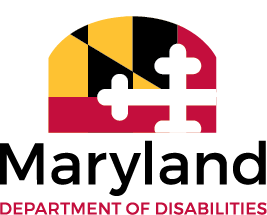What to Expect as You Approach Your 18th Birthday
If you or your family receive a monthly check from the government because you have a disability, there are several things you need to be aware of as you approach your 18th birthday.

Information & Services
Age 18 Reedetermination
At age 18, youth who get SSI must go through two kinds of medical reviews to keep their benefits. More information about Age 18 Redetermination.
Section 301
Section 301 is a work incentive that lets you keep SSI and medical insurance longer while you prepare for employment. More information about Section 301.
WIPA
WIPA benefits counselors can proactively advise you about requesting Section 301. More information about WIPA.
Medical Reviews under Age 18
If you are under age 18 and receiving SSI, you may have a medical review. More information about medical reviews under age 18.
Age 18 Redetermination
The Social Security Administration’s (SSA) disability rules for adults are different from disability rules for children. If medical reviews don’t show that you meet Social Security’s adult disability standard or you have medically improved, benefits usually stop.
The review usually happens within a year after you turn 18. This is called age 18 redetermination. Social Security will contact you to complete a medical review. Social Security will send a letter and it will do one of two things.
Forms and documents required for the age 18 redetermination include:
- SSA 827: Authorization for Source to Release Information to the Social Security Administration.
- SSA 5665: Teacher’s Questionnaire. Your teachers can help by completing this form.
- Appropriate disability and functional reports.
- Medical evidence and contact information for treating sources and functional information for the year preceding the interview; school records, if they help verify disability.
NOTE: If you do not meet the adult standard, your SSI will stop. However, SSI may continue through Section 301 if you take part in special education with an IEP, vocational rehabilitation, or certain other employment programs.
What is Section 301?
Section 301 is a work incentive that lets you keep SSI and medical insurance longer while you prepare for employment, even though you may no longer meets Social Security’s adult disability definition or you have “medically improved”.
You must take part in an approved program such as Division of Rehabilitation Services or receive special education services, and other services designed to help you gain work skills and experience.
Other benefits of Section 301 are:
Automatic elibility for SSI
If you participate in special education — with an Individualized Education Program (IEP) — then you are automatically eligible to keep SSI through Section 301.
SSI payments can continue
SSI payments can continue until either you stop participating in a program, OR you reach age 21, whichever comes first.
Ability to transition into another employment program
If a program ends prior to you turning 21, you can transition into another employment program – especially through the Division of Rehabilitation Services (DORS) – and possibly still continue SSI payments through Section 301.
NOTE: You must start the other program within 3 months after the end of the month that your program participation stops or the program ends. Social Security will review your participation in these programs to decide whether it will reduce the chances you will return to SSI rolls in the future.
For Maryland PROMISE, it is important to note the following:
How can I get qualified for Section 301 if I am not enrolled/eligible for Maryland PROMISE?
If you have not yet been determined medically improved and have a case open with DORS, then DORS could pay for benefits counseling. Please talk with your DORS counselor and request benefits counseling from someone with knowledge of 301.
What is WIPA?
If you have received notice of a medical review from Social Security and have not yet received the decision, the Maryland Work Incentives Planning and Assistance (WIPA) can serve you. Benefits counselors can proactively advise you about requesting Section 301 if necessary, and which forms need to be completed. However, once Social Security has issued the decision that you are no longer eligible for SSI, WIPA can no longer help you.
It may be hard for you to navigate Section 301 without a benefits counselor, so you should reach out to a WIPA as soon as possible prior to turning 18 or as soon as you know you are under review for medical improvement. For more information visit the Maryland WIPA Website or call the Ticket to Work Helpline (866) 968-7842. The Helpline refers callers to local WIPA projects when appropriate, but can also refer callers to other resources as needed.
Maryland’s WIPA Contact Information
Maryland WIPA Website
Phone: (301) 277-2839
Medical Reviews under Age 18
If you are under age 18 and receiving SSI, you may have a medical review.
Some forms for the medical review are online:
- SSA 3881: Questionnaire for Children Claiming SSI Benefits.
- SSA 3379: Function Report – Child Age 12 to 18th Birthday .
- SSA 827: Authorization for Source to Release Information to the Social Security Administration.
- Medical evidence from and contact information for health care providers who treat you and functional information. Many forms must be completed only by a Social Security Representative. Call SSA at 1-800-772-1213 (TTY 1-800-325-0778) or contact your local Social Security office.
Appealing a Medical Review Determination
Even if you are not eligible for Section 301, you can always appeal if you are not happy with the result of the age 18 review. However, there are timelines and steps that must be taken.
Form for Appealing a Medical Review Determination
- SSA 561: Request for Reconsideration. Complete this form to request an appeal.
A DORS funded benefits counselor can assist with the appeal if DORS approves it.
However, the WIPA cannot assist with appeals.
You can keep benefits, pending the result of the appeal (through the second level of appeal, a hearing with an administrative law judge), if you submit the appeal request within 15 days of date on the notice of the unfavorable decision on the medical review (Note: It’s supposed to be within 10 days of receiving the notice, and Social Security assumes it takes 5 days to receive the notice).
IMPORTANT: If your benefits continue pending the result of the appeal and the appeal is unsuccessful, you are likely to have an overpayment. You must repay the benefits sent after they would ordinarily have stopped (usually, any payments received after the second calendar month following the month of the unfavorable decision).
If you qualify for Section 301, though, you do not have to repay the benefits.

